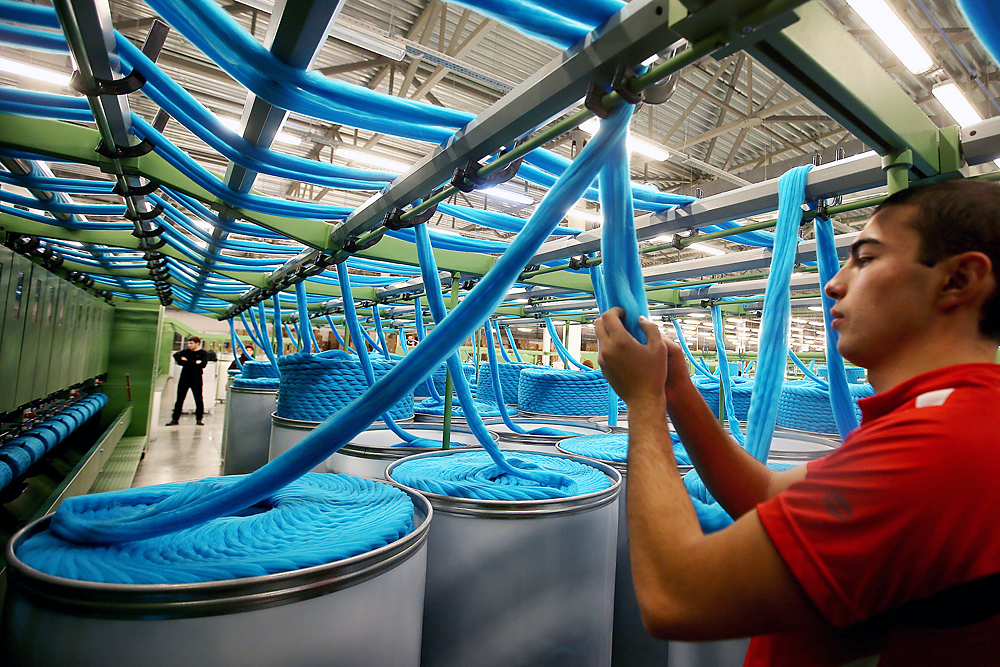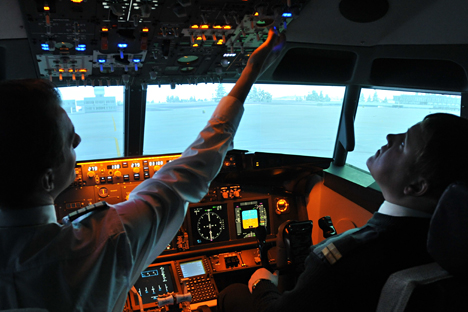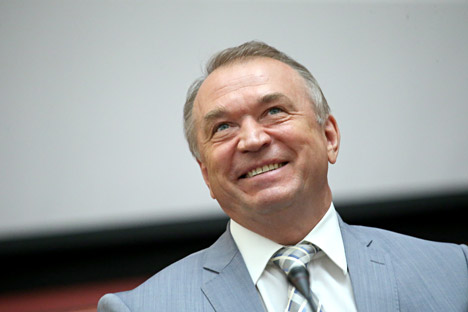Russia’s latest anti-crisis plan: How will it work?

The government is trying to help the real sector of the economy without going through the banking structures.
Sergey Fadeichev/TASSAt the beginning of 2016 the signs for the Russian economy are not good – according to a number of indicators the crisis has deepened. In 2015 GDP fell by 3.7 percent, retail trade declined by 10 percent and investment shrank by 8.4 percent.
In an attempt to keep the economy afloat, the government has now asked all the ministries to reduce spending.
The reductions will total about 0.9 percent of GDP and will help maintain the budget deficit below 3 percent. However, after the cost of Brent crude fell in January to $30 a barrel (which may lead to further slowdowns in Russia's oil-dependent economy), the government decided to develop a special anti-crisis plan.
The plan's main aim is to allot 737 billion rubles ($9.29 billion) in support of industry. Four fundamental sectors are to receive the funds: the car manufacturing sector, transportation machine construction, housing construction and light industry.
Unlike last year, the government is trying to help the real sector of the economy without going through the banking structures. While in 2009 and 2014 the government directed anti-crisis resources through the capitalization of banks and the stimulation of loans, now the plan is to issue various types of grants and government contracts. This means that the enterprises will receive the money directly, bypassing credit institutions, and it will be the government that decides who will be the recipients of the precious billions.
But could there be another way of helping Russia to climb out of financial trouble? Here are three potential options that the Kremlin could also consider:
Three alternatives to the decision
1. Increase taxes
Russia currently has an 18-percent value-added tax (equivalent to the European VAT). In 2014 the government actively discussed raising the Russian VAT to 20 percent.
As an alternative, the government is also reviewing the possibility of introducing a sales tax, like in the U.S., equal to 3 percent. However, independent economists have spoken against the sales tax. A similar tax existed in Russia in the 1990s and it had an effect on only 30 percent of the population, meaning that two thirds of the country did not pay it.
However, it is unlikely that the government will pursue this option after Russian President Vladimir Putin promised in June 2015 not to raise taxes in Russia for four years.
2. Take out a loan
Russia has a record low level of government debt, about 12 percent of the country's GDP.
Ex-Finance Minister Alexei Kudrin calculates that the government can afford a national debt of anywhere up to 30 percent without serious repercussions. Given the fact that Russia's budget in 2015 was about 75 trillion rubles ($945 billion), the Russian government can safely borrow up to $170 billion on foreign markets.
The problem is that today Russia's economy is still subject to sanctions. Moreover, international rating agencies regularly worsen the prospects of its development. On Feb. 2, for example, Fitch Ratings lowered its rating of the Russian economy by 0.5 percent, saying that Russia's GDP in 2016 will decline by 1 percent. This inevitably reflects on the cost of borrowing money.
3. Change the budget structurally
Russia is one of the world's leaders regarding the share of GDP directed towards national defense and the army. Despite the fall in GDP, the volume of such spending is only increasing. In 2016 it will reach 4.5 percent of GDP, a percentage that is bigger than in the U.S. and in China. Furthermore, budget sequestration does not concern army expenditure.
Another privileged category of the population is pensioners. Every year the government indexes pensions to the growing inflation. An alternative decision would be to increase the pensionable age, to cancel pension indexation and to reduce defense spending. A priority in such a case would be to support education. At the beginning of January 2016, German Gref, the head of Russia's largest bank Sberbank and former economy minister spoke about the necessity of moving precisely in this direction.
Read more: At Davos forum Russia promises to eliminate its dependence on oil>>>
All rights reserved by Rossiyskaya Gazeta.
Subscribe
to our newsletter!
Get the week's best stories straight to your inbox

